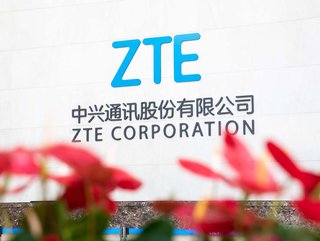ZTE: Telecom Industry’s Vital Role in Driving Sustainability

As the world grapples with the pressing challenges of climate change, every industry must play its part in reducing greenhouse gas emissions and promoting sustainability. The telecom industry, which provides the essential infrastructure for digital connectivity, has a vital role to play in this effort.
The telecom sector’s operations, including the manufacturing of equipment, and powering of networks and data centres, contribute significantly to global carbon emissions. However, the industry also possesses innovative technologies and solutions that can drive energy efficiency, reduce resource consumption and enable other sectors to decarbonise.
Leading telecom companies around the world are today recognising the urgency of making strides towards sustainability, and are setting ambitious targets to reduce their environmental impact. One such company is ZTE, a global provider of telecommunications equipment and network solutions.
The company has announced its science-based targets for greenhouse gas emissions reduction have been approved by the Science Based Targets initiative (SBTi), committing to reducing its absolute Scope 1 and 2 emissions by 52% by 2030, 90% by 2040, and achieving net-zero emissions across its value chain by 2050.
These targets align with the Paris Agreement's goal of limiting global temperature rise to 1.5°C above pre-industrial levels, making ZTE the first large-scale ICT tech company in China to receive official approval for both near-term and long-term emissions reduction targets.
ZTE’s sustainability strategy
SBTi is a global initiative jointly launched by the World Wide Fund for Nature (WWF), the Carbon Disclosure Project (CDP), the World Resources Institute (WRI), and the United Nations Global Compact (UNGC). This initiative aims to set emission reduction targets based on climate science to encourage companies worldwide to reduce carbon emissions in line with the requirements of the Paris Agreement, collectively addressing the challenges posed by climate change.
ZTE has developed a comprehensive green and low-carbon strategy focused on four key dimensions: Green Operations, Green Supply Chain, Green Digital Infrastructure and Green Empowerment.
Through this strategy, ZTE is integrating sustainability into every aspect of its operations, from research and development to production and supply chain management. The company is investing in innovative technologies such as intelligent photovoltaic power generation, hydrogen fuel cells, liquid cooling, and AI-driven energy conservation solutions to reduce its environmental impact and help its customers achieve their sustainability goals.
One of the key ways ZTE is driving sustainability is through its Green Digital Infrastructure initiatives. By developing ultra-efficient ICT solutions and intelligent networks, ZTE is enabling various industries to reduce their energy consumption, emissions and improve operational efficiency.
The company's "Digital Nebula" architecture and green precision cloud network solutions are designed to empower industries to achieve energy conservation, emission reduction, and efficiency improvements, demonstrating the potential of technology to drive sustainable development.
“ZTE keeps moving forward on a green path to digital economy,” says ZTE’s Executive Vice President and Chief Operating Officer Xie Junshi, writing in the company’s latest sustainability report. “Guided by the dual carbon goals, we have set up a corporate-level team led by the Chief Strategy Officer to carry out 10 programs on carbon emission reduction. Meanwhile, the company vigorously works on green product innovation, and promotes carbon emission reduction across the product lifecycle, from design and R&D, packaging and shipment, to recycling.
“To fully embrace green development, the ICT industry is obliged to empower other industries,” he says. “As a leading player in this industry, ZTE not only provides integrated ICT solutions to promote the green development of operators and traditional industries, but also takes an active part in standards formulation, so as to make the world better and greener.”
******
Make sure you check out the latest edition of Mobile Magazine and also sign up to our global conference series - Tech & AI LIVE 2024
******
Mobile Magazine is a BizClik brand






